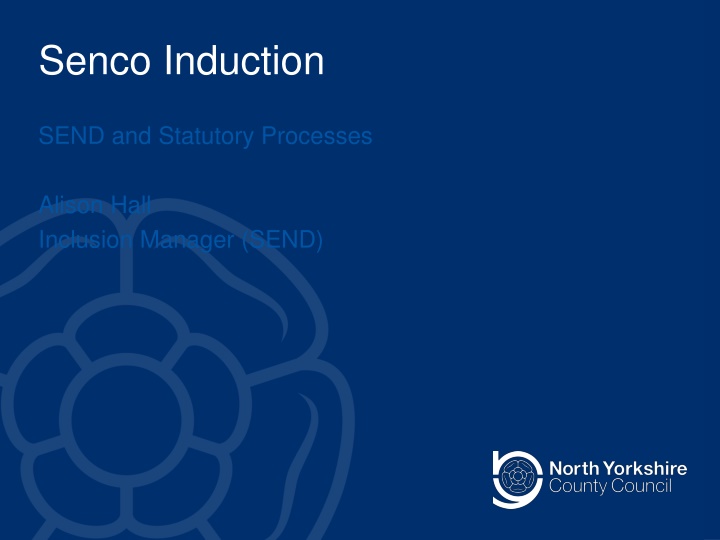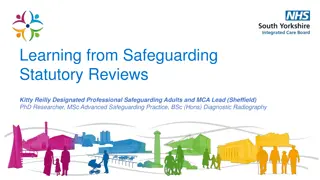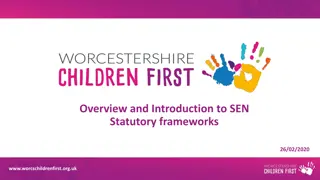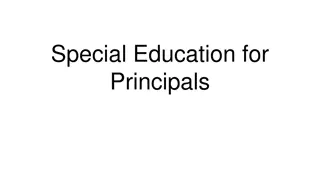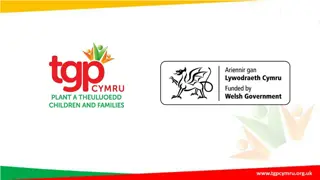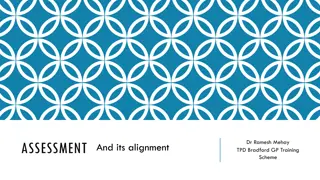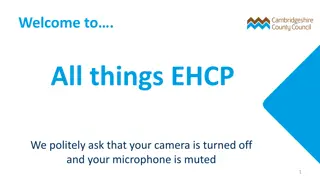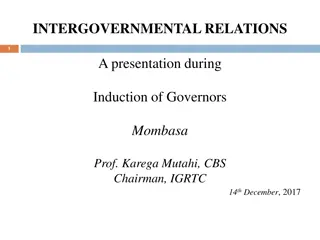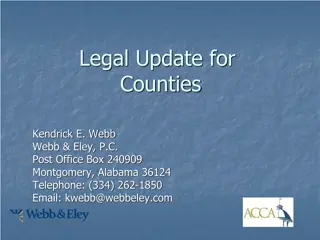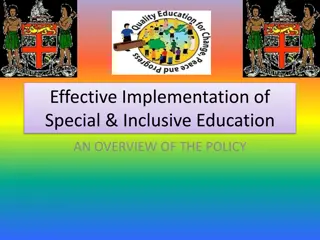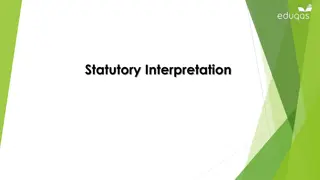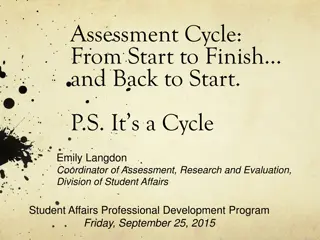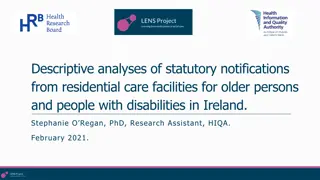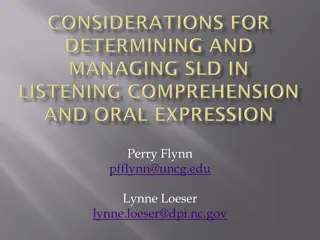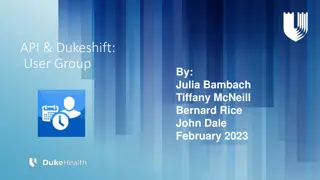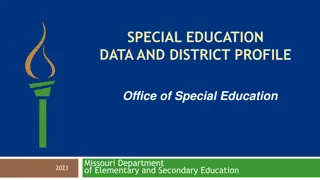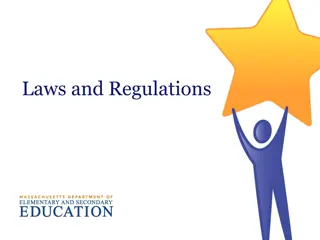Statutory Assessment and Processes in Special Education
Understanding the statutory assessment process for children and young people with special educational needs and disabilities (SEND), including who can make requests, the steps involved, and the importance of EHCPs. Learn about the roles of casework managers and officers in assessing needs, providing advice, and finalizing EHCPs.
Download Presentation

Please find below an Image/Link to download the presentation.
The content on the website is provided AS IS for your information and personal use only. It may not be sold, licensed, or shared on other websites without obtaining consent from the author.If you encounter any issues during the download, it is possible that the publisher has removed the file from their server.
You are allowed to download the files provided on this website for personal or commercial use, subject to the condition that they are used lawfully. All files are the property of their respective owners.
The content on the website is provided AS IS for your information and personal use only. It may not be sold, licensed, or shared on other websites without obtaining consent from the author.
E N D
Presentation Transcript
Senco Induction SEND and Statutory Processes Alison Hall Inclusion Manager (SEND)
Who are we? Vacancy Gill Pritchard Jenkins Casework Manager Ripon and Knaresborough .5 Nicola Mahon Casework Manager Scarborborough/ Whitby / Rydale Jan Brennand Casework Manager Craven & Harrogate Vacancy Howard Stavely Casework Manager Preparing for Adulthood Casework Manager Hambleton / Richmondshire Casework Manager Selby Ayesha Ismail- Gilroy Casework Officer Josh Gilbin Casework Officer Vacancy Charlotte Ellis Casework Officer Dawn Broadhead Casework Officer Jamie-Lee James Casework Officer Casework Officer Jo Featherstone / Vacancy (Lisa) (Job Share) Casework Officer Anna Ramsbottom Casework Officer Vacancy Francis Consoli Casework Officer Rachel Stacey Casework Officer Casework Officer Amy Shuttleworth Casework Officer Vacancy Zoe Spink Casework Officer Casework Officer Angela Cavill Casework Officer
What do we do? Consider requests for assessment Complete assessments Consider recommendations from annual reviews Place children and YP with EHCPs Consider Direct Payments for children and YP with EHCPs
What is Statutory Assessment The statutory education, health and care (EHC) assessment is a legal process that provides a full investigation of a child or young person s educational, health and social care needs. It is carried out by the local authority where a child lives. OFFICIAL - SENSITIVE
Request for Assessment Who can make a request? The setting For children under 16 a parent can make a request. In the case of a young person (over 16 and up to 25) they can make the request themselves if they understand it sufficiently well themselves otherwise the parent can make the request on a young person s behalf. You can only ask for an EHC needs assessment if the child or young person has or may have educational needs it does not apply where there are only health and/or care needs no matter how severe. OFFICIAL - SENSITIVE
The Statutory Assessment Process 1 2 3 4 5 6 7 8 9 10 11 12 13 14 15 16 17 18 19 20 Finalising EHCP Decision to Assess Information and Advice Gathering Placement consultation / agreement Collating of advice by CWO Information and advice requested Receipt and acknowledgment of application Advice givers return their information and advice Consideration of direct payment request Consider ed at decision panel Decision meeting held and decision whether to assess is made Issue final plan OFFICIAL - SENSITIVE
Education Health and Care Plans The Children and Families Act 2014 SEN system from 0 to 25 years Gives children, young people and their parents greater control and choice in decisions and ensuring that needs are properly met Has Education, Health and Social Care provision within one document SENCOs have a key role in completing the paperwork for those of school age and overseeing the EHCP
Accurate and description of needs Co- produced Clear, concise and accessible language Specified and quantified provision What does a good EHCP look like? Aspirations Provision Needs Outcomes The Golden Thread OFFICIAL - SENSITIVE
Sections within an EHCP A Aspirations Views, Hopes, Dreams, Interests B Educational Needs C Health Needs D Care Needs E Outcomes F Educational Provision G Health Provision H1&2 Care Provision I School placement J Personal Budget K Reports from Professionals (advice and information) OFFICIAL - SENSITIVE
Appeals to Tribunal Parents or young people can appeal: B Educational Needs F Educational Provision I School placement However, tribunals can now give recommendations for Health and Social Care Sections School appeal on being named in Section I is through the Secretary of State not through a tribunal. Presumption of mainstream. OFFICIAL - SENSITIVE
Setting up and Annual Review Set the date First review must be held within 12 months of the date the EHCP plan was issued. The date should allow this Annual Review to be completed by 12 months of the last Annual Review Send out invites to and request reports from: The child or young person, the parents, An LA representative (via sen@northyorks.gov.uk), any outside agencies involved (EP, SaLT) Year 9, should be held as a Transition Review, inviting key agencies, who will provide information and support for pathways to adulthood. Circulate reports 2 weeks before the meeting Hold the meeting Complete the Annual Review Report and send to the LA within 2 weeks who will decide within 4 weeks to either: Maintain the Education, Health and Care plan with no changes, Amend the Education, Health and Care plan, or Cease to maintain the Education, Health and Care plan OFFICIAL - SENSITIVE
What makes a good review meeting? It should: Be welcoming, meangful and useful for the child/YP and family Use everyday language (no jargon) Value all contributions Listen without interruption Keep on track Confidential It must: Must focus on the CYP s progress towards achieving the outcomes specified in the EHCP Review the special educational provision made for the child or young person to ensure it is being effective in ensuring access to teaching and learning and good progress review the health and social care provision made for the child or young person and its effectiveness in ensuring good progress towards outcomes consider the continuing appropriateness of the EHC plan in the light of the child or young person s progress during the previous year or changed circumstances and whether changes are required including any changes to outcomes, provision, setting or whether the EHC plan should be discontinued Give an opportunity to request a Direct Payment. OFFICIAL - SENSITIVE
